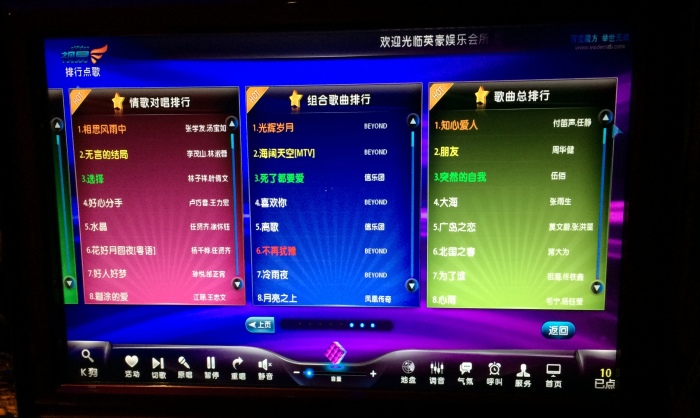Archive for the ‘杂话’ Category
关于投资的几句话
以下是我在德国热线股票外汇板块的一篇回复。我想大约会对其他的朋友也有些帮助,所以就发上来。原帖链接在此。
新年好!
我估计,除了金融理财专业的学生,我们之中的绝大多数都是learning by doing,而不是learning before doing。这么看的话,如果让我选择人生当中的第一支有价证券,我觉得大约应该是一支与指数挂钩的ETF (exchange-traded fund)。它所挂钩的指数,可以是DJIA、S&P 500,可以是DAX、E-STOXX 50,也可以是中国的某个证券市场。
除去交易费,ETF所收取的年费用很低;因为是与某一指数挂钩,我们丧失本金的风险极低。基于这些原因,我们可以选择长期持有它。这支ETF我们最少准备要持有5年。(我们用来投资证券的钱,应该是在将来的5至10年之内不需要个人使用的钱。)有人会说,现在DJIA和DAX都在历史高点,你还要买进?如果我们决定长期持有,这些问题并不是我们所关注的。因为我们准备长期持有,我们不担心它每日每月的升跌。
ETF和一般的股票有很多相似的地方。通过持有这支ETF,我们将会非常直观的了解到证券市场工作的基本原理、供求的基本规律、国际金融政策(包括利息政策)对市场的影响;我们会亲身了解分红的概念、所在国税收的规则;我们还会对证券交易的基本手段更加熟悉,知道基本的交易类型(stop loss、trailing stop、margin…);另外,我们也对所使用的broker更加了解,知道了它基本的收费名目,知道了如何比较不同的broker。通过持有这支ETF,我们渐渐学习。当对证券交易的认识相对完善的时候,我们可以考虑丰富我们的投资组合,购买其他的ETF、基金、国债、企业债券、以及单一股票。
建议多读些书。可以从Graham的The Intelligent Investor开始。这本书,句句珠玑,是一部经典。我们这一代人大约都没有经历过29-33年那种深刻的金融危机(00和07年的危机还是不能与大萧条相提并论的)。对于投资者来说这是件幸事,但是对于学习投资来说,这是个遗憾。牛市大家都能投资,真正好的投资者是历经熊市依然可以积累财富的人。
网上也有很多讯息。我个人比较常用的网站包括CNBC、Morningstar、Bloomberg、finanzen.net。同样记得关注Warren Buffett和George Soros这些经验老到的投资者。他们的话值得聆听。不过,网上的评论可以给我们提供咨询,却不能代替我们做出抉择。另外记住,投资没有捷径。听上去好得都不像真的了,往往就不是真的(If it sounds too good to be true, it probably isn’t)。整个资本市场大体上是很高效的,神一般的投资者长期年均回报率在20%左右。所以,注意区分神话与现实。
这大约是我一时间所能想到的。希望大家补充。
PS: “有了1000欧元的余钱就应该开始考虑投资了,并不该等到100万欧元。” 是一种简单的、基于计算的事实(compound interest,复利的感念),而不是一种主观臆想。当然,这不是说1000欧元和100万欧元的投资组合构成应该类似。
The greatest mathematicians of all time

Even though I truly believe math is sexy, I know putting the term “mathematician” in the title has already cost half of the readers.
For the rest half, take a look at the picture above. How many of these geniuses can you recognize?
If you can name more than half of them, bravo! Please read on: http://fabpedigree.com/james/mathmen.htm
– Viewer discretion is advised: Once you start reading, it sucks your time like a black hole. –
Videos from the paths on Hua Shan
It is an amazing place. You should go there (and come home in one piece).
Here is a wiki page about Hua Shan (华山) and another video:
http://www.youtube.com/watch?v=4nq0vtU-LVc
Economics in One Page 经济学的基本原理
“经济学最迷人的地方就在于她的基本原理是如此的简单,一页纸就能写下,任何人都可以理解,但很少人能做到。”
上面这句话是著名的经济、统计学者Milton Friedman的名言。虽然这句话里所包含的原则被人们广为接受,但是似乎没有什么人真正去尝试用一页纸来概括经济学。Forecasts & Strategies的编辑Mark Skousen大约是一个愿意吃螃蟹的人。
Economics in One Page
by Mark Skousen
1. Self-interest: The desire of bettering our condition comes with us from the womb and never leaves till we go into the grave (Adam Smith). No one spends someone else’s money as carefully as he spends his own.
2. Economic growth: The key to a higher standard of living is to expand savings, capital formation, education, and technology.
3. Trade: In all voluntary exchanges, where accurate information is known, both the buyer and seller gain; therefore, an increase in trade between individuals, groups, or nations benefits both parties.
4. Competition: Given the universal existence of limited resources and unlimited wants, competition exists in all societies and cannot be abolished by government edict.
5. Cooperation: Since most individuals are not self-sufficient, and almost all natural resources must be transformed in order to become usable, individuals—laborers, landlords, capitalists, and entrepreneurs—must work together to produce valuable goods and services.
6. Division of labor and comparative advantage: Differences in talents, intelligence, knowledge, and property lead to specialization and comparative advantage by each individual, firm, and nation.
7. Dispersion of knowledge: Information about market behavior is so diverse and ubiquitous that it cannot be captured and calculated by a central authority.
8. Profit and loss: Profit and loss are the market mechanisms that guide what should and should not be produced over the long run.
9. Opportunity cost: Given the limitations of time and resources, there are always trade-offs in life. If you want to do something, you must give up other things you may wish to do. The price you pay to engage in one activity is equal to the cost of other activities you have forgone.
10. Price theory: Prices are determined by the subjective valuations of buyers (demand) and sellers (supply), not by any objective cost of production; the higher the price, the smaller the quantity purchasers will be willing to buy and the larger the quantity sellers will be willing to offer for sale.
11. Causality: For every cause there is an effect. Actions taken by individuals, firms, and governments have an impact on other actors in the economy that may be predictable, although the level of predictability depends on the complexity of the actions involved.
12. Uncertainty: There is always a degree of risk and uncertainty about the future because people are often reevaluating, learning from their mistakes, and changing their minds, thus making it difficult to predict their behavior in the future.
13. Labor economics: Higher wages can only be achieved in the long run by greater productivity, i.e., applying more capital investment per worker; chronic unemployment is caused by government fixing wage rates above equilibrium market levels.
14. Government controls: Price-rent-wage controls may benefit some individuals and groups, but not society as a whole; ultimately, they create shortages, black markets, and a deterioration of quality and services. There is no such thing as a free lunch.
15. Money: Deliberate attempts to depreciate the nation’s currency, artificially lower interest rates, and engage in easy money policies inevitably lead to inflation, boom-bust cycles, and economic crisis. The market, not the state, should determine money and credit.
16. Public finance: In all public enterprises, in order to maintain a high degree of efficiency and good management, market principles should be adopted whenever possible: (1) Government should try to do only what private enterprise cannot do; government should not engage in businesses that private enterprise can do better; (2) government should live within its means; (3) cost-benefit analysis: marginal benefits should exceed marginal costs; and (4) the accountability principle: those who benefit from a service should pay for the service.




